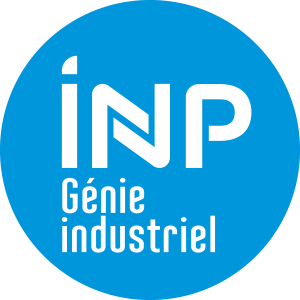Number of hours
- Lectures 27.0
- Projects -
- Tutorials 27.0
- Internship -
- Laboratory works -
- Written tests -
ECTS
ECTS 6.0
Goal(s)
The aim of this course is to give an insight into methods and tools used during information system deployment. The emphasis is on ERP (Enterprise Resource Planning) and BI (Business Intelligence) systems. However, MES systems (Manufacturing Execution System) are tackled.
At the end of this course, students should be able to contribute actively in ERP/BI deployment projects. They would be aware of the issues and risks associated with such projects and know the most appropriate methods and tools to carry out these projects. In particular, they will be able to:
- Analyze and define the functional requirements and interfaces of an ERP/BI
- Design the relevant components and interfaces of an ERP/BI
- Select a relevant ERP/BI software taking into account several criteria
- Realize the configuration or a specific development for an ERP/BI
- Contribute to the deployment and change management
Content(s)
This course deals with ERP and BI systems from two points of view:
• Managerial view: through lectures and industrial examples (presented by engineers coming from industry), this point of view gives an insight on concepts managed in ERP and BI systems, their architecture, ERP/BI choice and use of sub-contracting, business process management for setting up an ERP/BI, ERP/BI project management (classic and agile methods) and change management (sociological issues)
• practical view: through a case study which allows students to put into practice some project phases (needs' specifications, ERP and BI configuration and validation). Two ERP systems are considered (SAP and ODOO) and a BI system (Tableau)
Information systems basics, relational databases, project management
EPE = Assessment (ERP project) 1st exam period
EPB = Assessment (BI project) 1st exam period
ESI = Assessment (SI Workshop) 1st exam period
E2 = Assessment (written exam) 2nd exam period
N1 = Final mark from the 1st exam period
The participation of each student is taken into account in the evaluations.
N2 = Final mark from the 2nd exam period
N1 = (0,4*EPB + 0,4*EPE + 0,2*ESI)
N2 = Max (N1,E2)
Cette pondération est compatible avec une organisation des enseignements et des examens en distanciel
La participation et l'investissement de chaque élève sont prises en compte dans ses évaluations.
The course exists in the following branches:
- Curriculum - Master 2 GI SIE program - Semester 9
- Curriculum - - Semester 9
- Curriculum - Engineer student Master PD - Semester 9
- Curriculum - - Semester 9
- Curriculum - Master 2 GI SIE program - Semester 9
- Curriculum - Engineer student Master SCM - Semester 9
- Curriculum - Engineer IPID apprentice program - Semester 9
Course ID : 5GUC2804
Course language(s): 
You can find this course among all other courses.
- Debauche B., Mégard P. BPM Business Process Management : Pilotage métier de l'entreprise. Ed. Hermes-Lavoisier, 2004
- Champy J., Hammer M. Le Reengineering : Réinventer l'entreprise pour une amélioration spectaculaire de ses performances. Ed. Dunod, 2003
- Lemaire L. Systèmes de gestion intégrés : des technologies à risques. Ed. Liaisons, 2003
- Lequeux J-L. Manager avec les ERP. Ed. d'organisation, 2000
- Moisdon J-C. Du monde d'existence des outils de gestion, Ed. Séli Arslan, 1997
- http://www.eyrolles.com/Accueil/Auteur/denis-segrestin-47237?xd=95d03fecbc9ed2596252a4717de61bee - Segrestin D., http://www.eyrolles.com/Accueil/Auteur/jean-louis-darreon-47238?xd=95d03fecbc9ed2596252a4717de61bee - Darréon J-L., http://www.eyrolles.com/Accueil/Auteur/pascale-trompette-47239?xd=95d03fecbc9ed2596252a4717de61bee - Trompette P. Le mythe de l'organisation intégrée ; les progiciels de gestion. Revue « Sciences de la société », n° 61. Ed. Presses universitaires du Mirail, 2004
- Bernard J-G., Rivard S., A. Aubert B. L'exposition au risque d'implantation d'ERP : éléments de mesure et d'atténuation. Revue « Systèmes d'information et management », vol 9 / n° 2. Ed Eska, 2004
Tomas J-L. ERP et progiciels de gestion intégrés. Ed. Dunod, 1997
French State controlled diploma conferring a Master's degree

Common Core presentation
Programme courses S5
Programme courses S6
Supply Chain Management
Programme presentation
Programme courses S7
Programme courses S8
Programme courses S9
Programme courses S10
Product Design
Programme presentation
Programme courses S7
Programme courses S8
Programme courses S9
Programme courses S10
Contacts
Academic staff
- Head of studies:
Pierre Lemaire - Head of 1st Year Program:
Abdourahim Sylla - Head of Supply Chain Management Program:
Irène Gannaz - Head of Product design Program:
Yann Ledoux
Registrar's office
- Head of Registrar's office:
genie-industriel.scolarite@grenoble-inp.fr - Secretary's office 1st Year:
Valérie Demicheli - Secretary's office 2nd Year:
Sylvie Malandrino - Secretary's office 3rd Year:
Vincente Odier - International relations department:
Nadia Dehemchi



